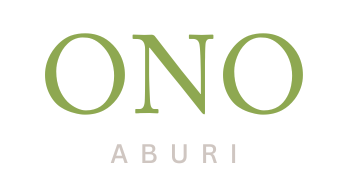For many people who are financially ready to fund a home, the big question often borders on opting to buy an already-built house or to build from scratch. Both options come with benefits and challenges. Some people say building gives you more control. Others argue that buying saves time. But when it comes to cost, things aren’t always so clear.
This post breaks down the real costs and realities of buying property in Ghana versus building a house in Ghana, so you can decide what’s best for your goals, budget, and lifestyle.
Buying Property in Ghana: What to Expect
Buying means you’re getting a finished home, either newly built or slightly used. You can move in quickly, avoid the stress of managing contractors, and skip the long wait for construction. But then, it comes with the cost.
Cost of Buying a Property
On average, the price of a 3-bedroom house in a good area like East Legon Hills, Adenta, Spintex, or Pokuase ranges from $90,000 to $300,000 for completed homes depending on location, size, and design.
You pay for land value, building cost, developer’s profit, infrastructure (roads, water, lights), and agent or legal fees. In many cases, the price reflects not just materials and labour, but also the convenience of not doing it yourself.
Pros
- Quick move-in
- No construction delays
- Less stress and supervision
- Easier mortgage options (with banks or developers)
Cons
- More expensive upfront
- Limited room for customisation
- Risk of poor finishing or hidden issues
- Price includes developer’s markup
If you’re busy, live abroad, or just want peace of mind, buying property in Ghana may be the smoother option. Just make sure you do a full inspection before you pay.
Building a House in Ghana: What to Expect

Building your own house means starting from land acquisition to finishing. You choose the design, materials, and pace of work. Many Ghanaians, especially those abroad, prefer this option for flexibility and savings.
Cost of Building a House
The cost of construction in Ghana varies widely depending on location, material prices, labour, and building size. In 2024, building a 3-bedroom house in Ghana cost around $60,000, according to the African Investor.
As of 2025, a basic 3-bedroom house (on your land) could cost you between GHS 400,000–700,000, which is equivalent to $36,248.32–$63,434.56.
A high-end finish or double-storey could cost you GHS 800,000–1.5 million or more. This is equivalent to about $72,496.64–$136,363.64.
You’ll spend on land purchase and registration, surveying and site plan, building permit, architect and engineer fees, labour and materials, water, electricity, and septic system, as well as fencing and security. One big cost-saver is that you can build in phases based on your budget.
Pros
- Custom design to fit your needs
- It can be cheaper in the long run
- Full control over materials and finish
- Option to build gradually
Cons
- Takes longer (6 months to 2+ years)
- Requires close supervision or a trusted team
- Risk of cost overruns
- Stress from unreliable workers or inflation
If you already own land or have a flexible timeline, building a house in Ghana could save you money and let you create your dream home.
Comparing the Two: Which is cheaper?
| Expense Category | Buying Ready-Made | Building From Scratch |
|---|---|---|
| Land Cost | Included in price | Separate (you must buy land) |
| Building Cost | Marked up | You control the cost |
| Customization | Limited | Fully flexible |
| Time to Move In | Immediate | 6–24 months |
| Risk Level | Lower (if verified) | Higher (delays, cost overruns) |
| Average Cost (3-bed home) | GHS 600,000–2,500,000+ | GHS 400,000–1,500,000 |
Well, if you already own land and can supervise or trust someone to manage the project, building a house in Ghana is usually cheaper. But if you need something move-in ready, and time is more important than savings, buying property in Ghana might be worth the extra cost.
Hidden Costs You Shouldn’t Forget
Whichever path you choose, remember there are extra expenses beyond the basic price. When buying, there’ll be legal and agency fees (5–10%), land title transfer (if needed), and renovation or furniture costs.
When building, however, you’ll have to cover costs for architectural and structural plans, permit and inspection fees, utility connections (ECG and Ghana Water), site security and fencing, price fluctuations for cement, iron rods, and labour. These can add 10–20% more to your total budget, so always plan.
Conclusion
There’s no one-size-fits-all answer. The best option depends on you: your budget, timeline, and whether you already own land. The level of hands-on involvement you desire, as well as your long-term goals, whether you intend to use the property for personal living or investment, must also be factored into the decision-making process.
Buying property in Ghana offers speed and convenience, albeit at a premium, while building a house provides savings and control, albeit with more effort and time. Whatever you decide, make sure you do your homework. Talk to a lawyer. Visit the site. Get a second opinion. And always plan for surprises.
